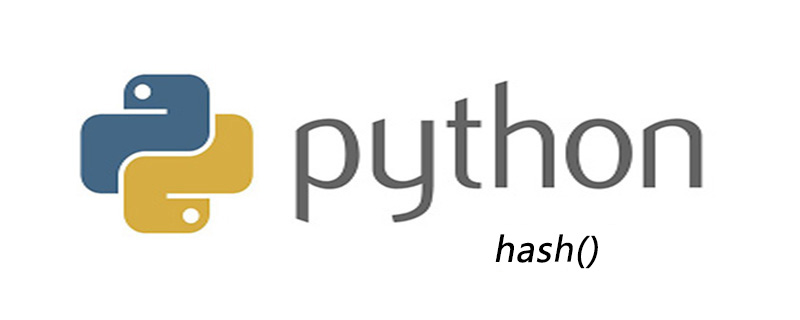Home >Backend Development >Python Tutorial >Is hash() built-in in Python?
Is hash() built-in in Python?
- 爱喝马黛茶的安东尼Original
- 2019-06-12 18:06:232362browse

Is the hash function hash() built-in in Python? Let me introduce you to the relevant knowledge of hash functions:
hash(object)
If object is a hashable object, hash( ) function will return its hash value; if the object does not belong to a hashable object, the hash() function will throw an exception. The hash value is an integer.
Related recommendations: "Python Video Tutorial"
hash('orca_j35') #> 3721949548176702466 hash([1,2]) #> TypeError: unhashable type: 'list
When searching for a dictionary, hash values are used to quickly compare dictionary keys. Objects with the same hash value are treated as the same key by the dictionary.
x = (1,2)y = (1,2)
# x和y是具备不同id的对象
x is y #> False
z = {x:"orca"}
# 只要哈希值相同,便可互换使用
z[y] #> 'orca'Equal (==) values have the same hash value. Even if two equal values belong to different types, their hash values are the same, such as 1 and 1.0:
1 == 1.0 #> True hash(1),hash(1.0) #> (1, 1)
tips: Two equal (==) objects must have the same hash value, but returning them does not necessarily hold true.
Note:
For objects with custom __hash__() methods, the hash() function will truncate __hash__ according to the bit width of the host machine. () The return value.
The above is the detailed content of Is hash() built-in in Python?. For more information, please follow other related articles on the PHP Chinese website!

